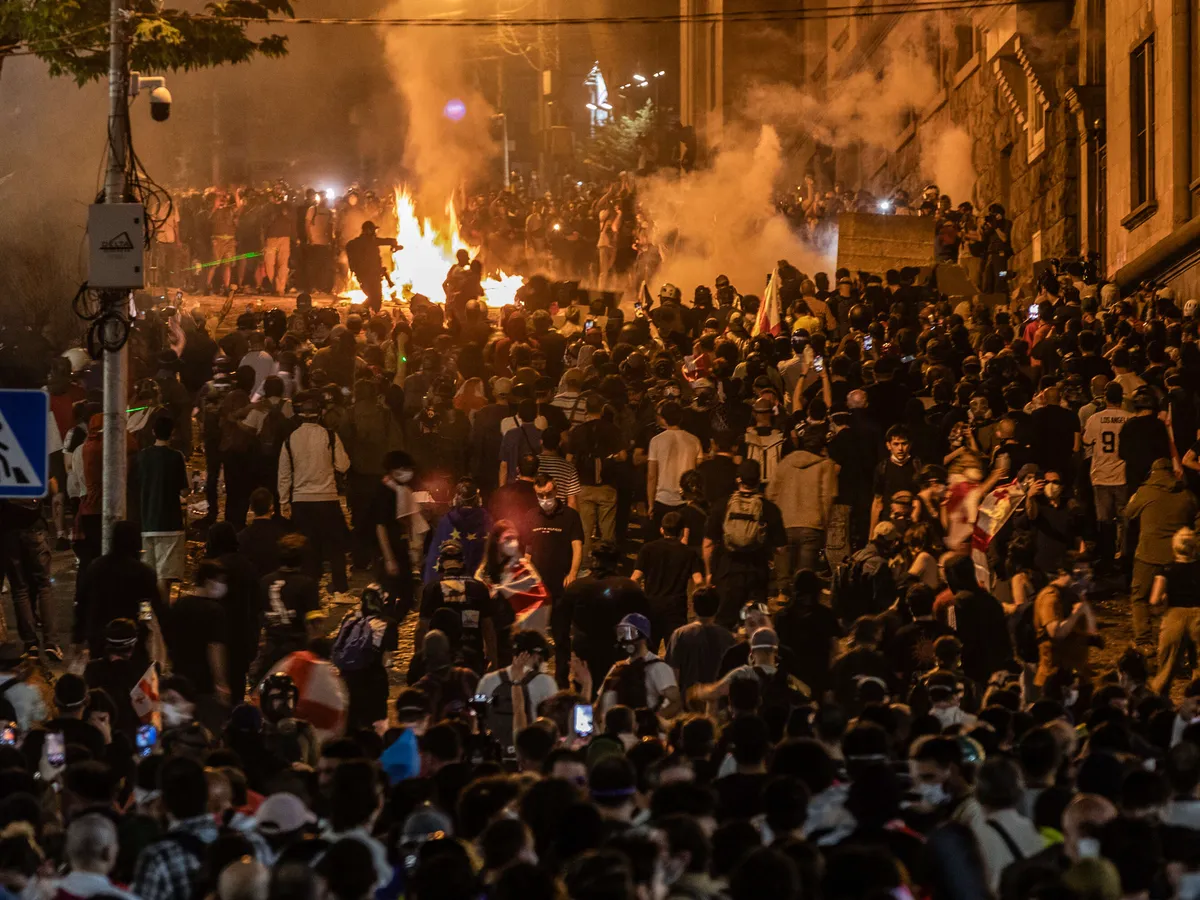According to researchers, the background of the escalation of the situation is Georgia’s status as an EU candidate country.
The Italian foreign policy institute ISPI, which closely follows the situation in Eastern Europe, Russia and the Caucasus, considers this week’s protests in Georgia and especially Russia’s reaction to them to be serious. Researchers are already drawing parallels to Ukraine.
In Tbilisi, the capital of Georgia, the riot police broke up the protests with great force: people were arrested and protesters were injured.
The background is a legal project promoted by the Georgian government, according to which non-governmental organizations and other actors that receive at least 20 percent of their funding from foreign sources declare themselves as “agents of foreign powers”. An attempt was made to pass the law about a year ago, but then the Georgian government had to back down due to protests. The bill is considered against European values.
According to ISPI researchers, the background is also Georgia’s status as an EU candidate country. In addition, the EU’s high representative for foreign policy Joseph Borrell condemned the violent dispersal of demonstrations in strong terms this week.
“Georgia is an EU candidate country, and I urge its authorities to ensure the right to peaceful assembly. The use of force to suppress it is unacceptable,” Borrell writes on the messaging service X.
(The story continues under embedding.)
The researchers of ISPI say directly that the bill exacerbated the situation, but basically Georgia is divided by a political crisis between the pro-European integration part and the increasingly authoritarian populist government.
“Georgia’s protests have once again provided an opportunity to compare the almost heroic activism of Georgians with Ukrainians. However, the situation is not simple, as the conditions and scope of the Russian oppressive apparatus are enormously larger than Georgia’s. However, there is no doubt that Georgian civil society is setting an example of its vitality and determination”, ISPI researcher Eleonora Tafuro Ambrosetti commented in the review published on Friday.
“It is interesting to watch how the Russian government and the media described the demonstrations,” he continues.
Ambrosetti emphasizes that the Kremlin spokesman Dmitry Peskov has accused the West of stoking ‘anti-Russian sentiment’ among Georgians, and Russia’s foreign minister Sergei Lavrov has publicly defended the controversial bill.
“This attitude meets a double goal: on the one hand, Russia is trying to delegitimize the protests, and does not want to give them too much attention. On the other hand, Russia is trying to emphasize the protestors’ alleged connection to the West, the actor who, according to the Kremlin, is behind all the accused ‘color revolutions’ in the region,” says Ambrosetti.
